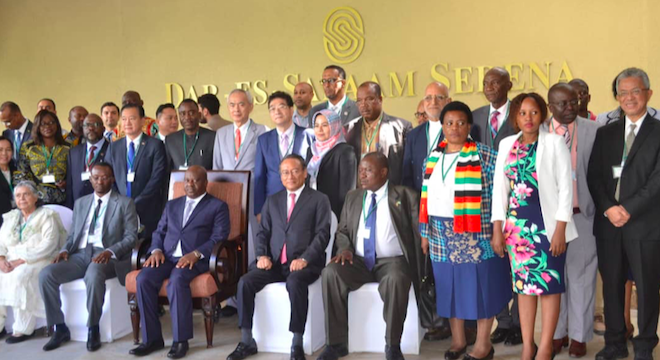PLCPD joins the call of Asian and African parliamentarians to accomplish the unfinished business of the ICPD Programme of Action

The Philippine Legislators’ Committee on Population and Development (PLCPD) participated in the inter-regional meeting on population and development of parliamentarians from Asia and Africa held in Dar es Salaam, Tanzania on August 5-8.
The meeting was organized by the Asian Population and Development Association (APDA) to gather inputs from policy makers and influencers from civil society in the two regions that would contribute to the discussion in the upcoming International Conference on Population and Development (ICPD)+25 Summit in Nairobi, Kenya in November 2019.
Select members of the parliament from the two regions presented their respective countries’ contributions to the ICPD Programme of Action. The Philippines, through PLCPD, shared its efforts in developing “Business Solutions for Women’s Empowerment and Healthy Society.” In the Philippines, model legislation such as the Reproductive Health Law, Extended Maternity Leave, Breastfeeding in the Workplace, Solo Parents’ Welfare, Women in Nation Building and Development, and the Magna Carta of Women have contributed to a vibrant policy environment for advancing women’s rights and empowering women.
While there remain pockets of challenges in terms of preventing teenage pregnancy, reducing fertility rates, and increasing high contraceptive use, access to reproductive health services is significantly improving in both regions. Some countries are making headway in their policies on food and nutrition security, labor and employment, public finance management, and freedom of information.
Also discussed during the inter-regional meeting were challenges brought about by climate change and political wars resulting in civil unrest, as well as the persistence of harmful cultural practices such as female genital mutilation and child marriages that disproportionately affect women and girls, do not only harm only citizens’ health and individual well-being but also hamper the development.
The ICPD was a landmark meeting in 1994 that transformed governments’ response to population growth from chasing after numerical targets to human rights-based approach. The ICPD and its Programme of Action highlight the centrality of reproductive health and its relationship with women’s empowerment and gender equality in ensuring the security, well-being, and development of societies. The Programme of Action calls for access to reproductive health care, including family planning and maternal and child health.
